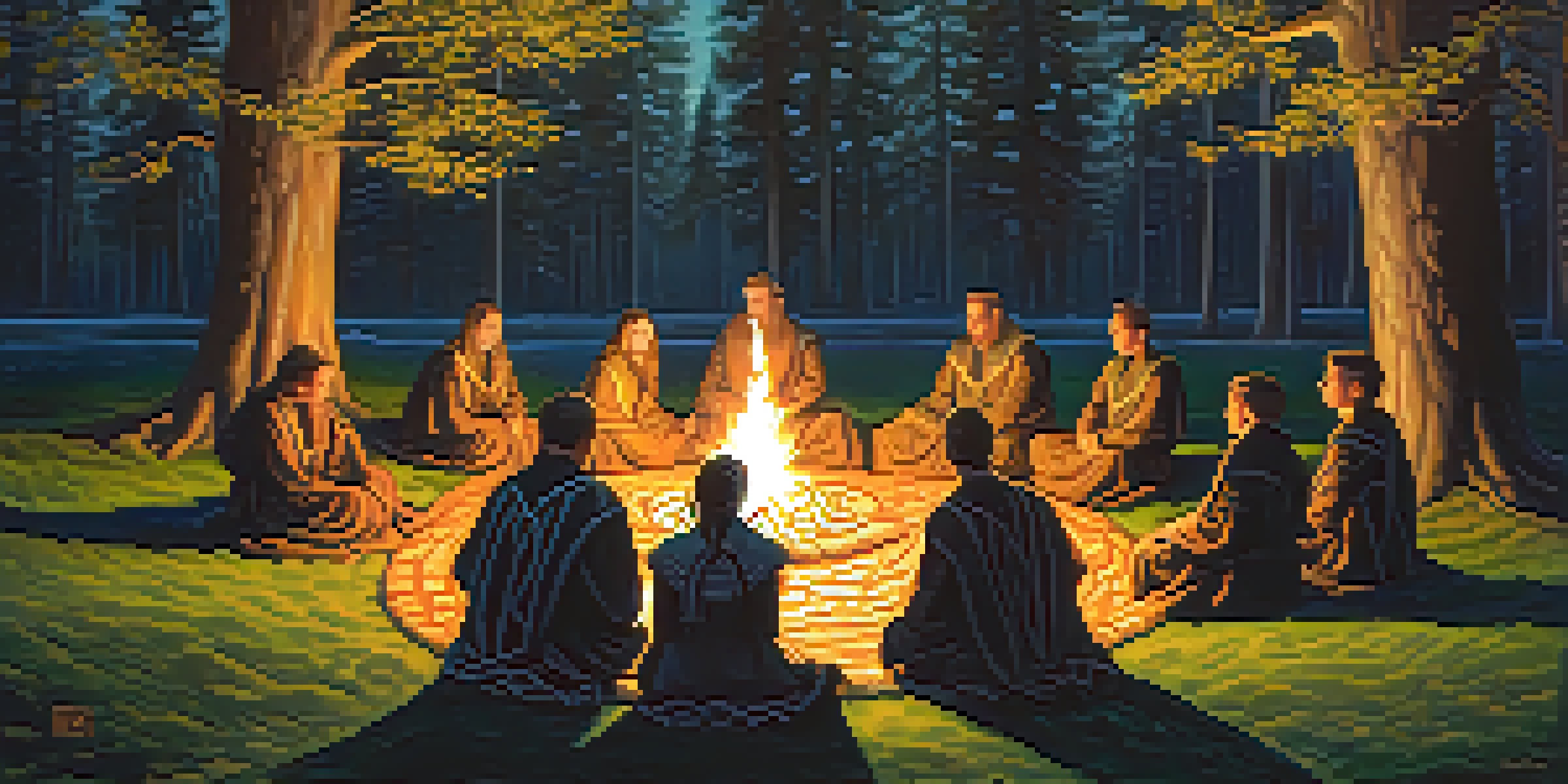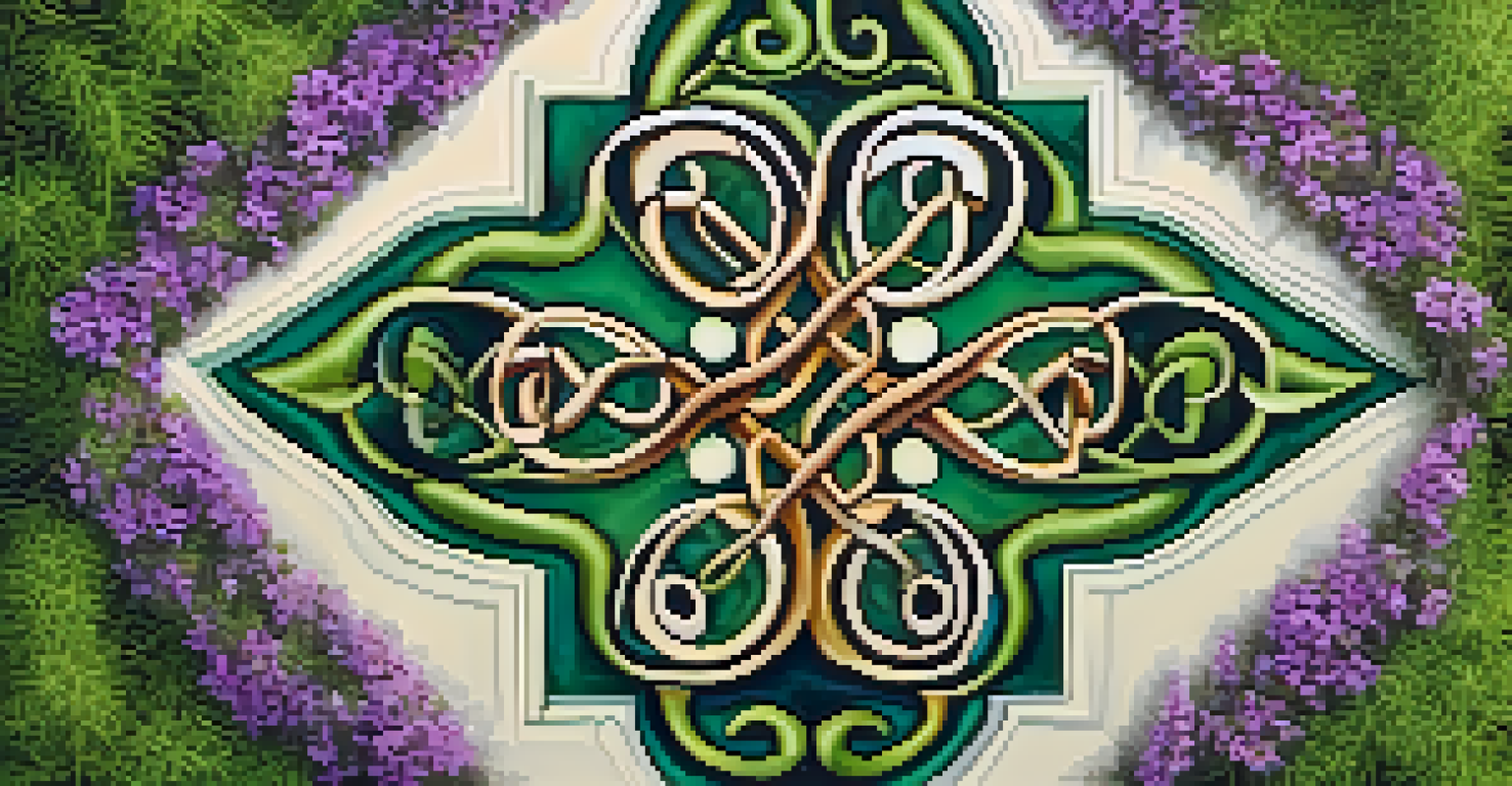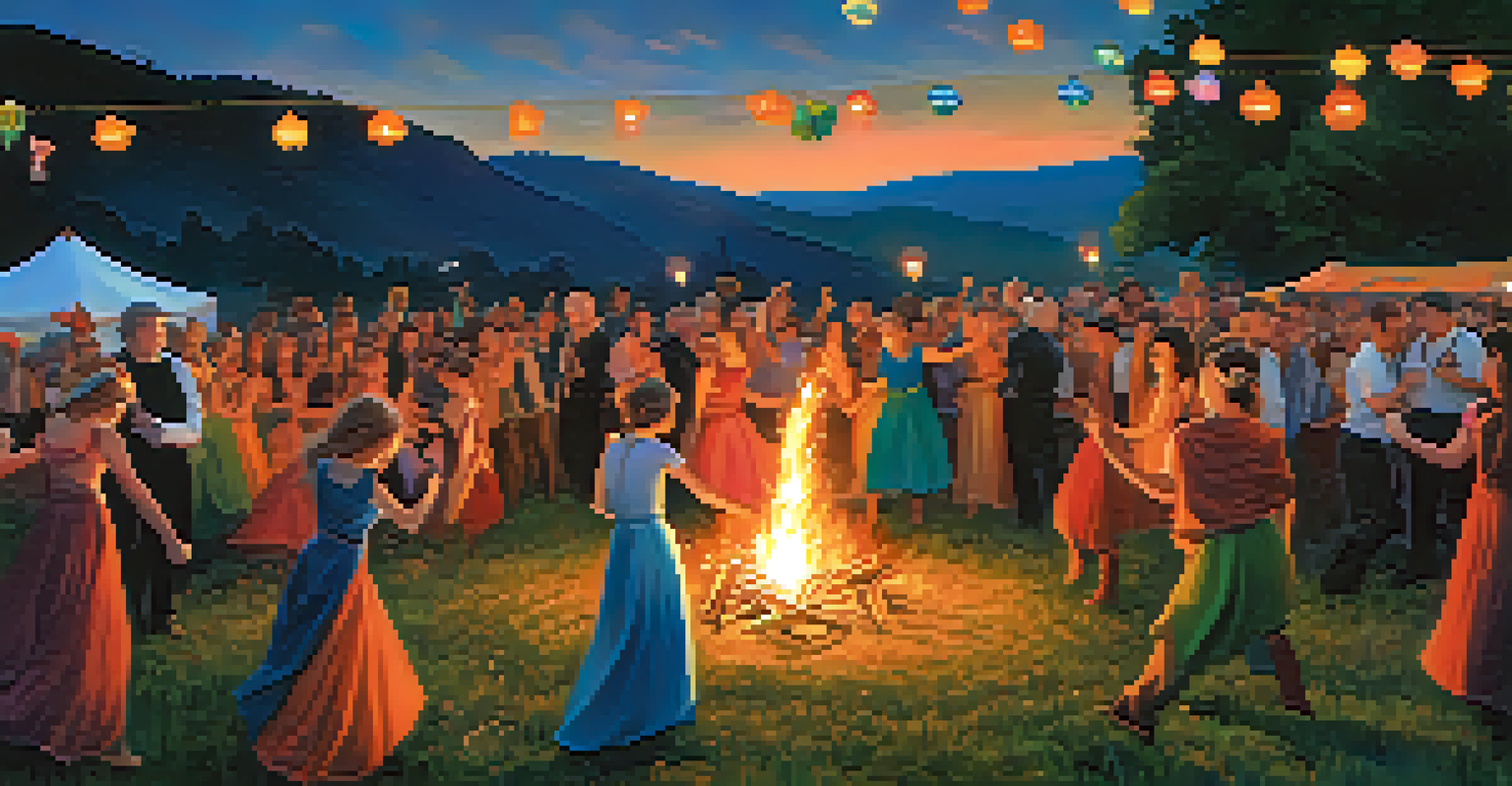The Spiritual Significance of Rituals in Celtic Traditions

Understanding Celtic Spirituality and Its Roots
Celtic spirituality is deeply intertwined with nature, community, and the cosmos. Rooted in ancient traditions, it emphasizes a connection to the land and the energies that flow through it. This holistic worldview creates a rich tapestry of beliefs and practices that celebrate life, death, and rebirth.
The earth has music for those who listen.
At the heart of Celtic spirituality is the belief in the Otherworld, a realm where the spirits of ancestors reside. This belief influences the rituals and ceremonies that honor both the living and the deceased. The cyclical nature of existence is reflected in their reverence for the changing seasons and natural rhythms.
Rituals serve as a bridge between the physical and spiritual realms, allowing practitioners to connect with their heritage and the cosmos. Through these practices, individuals seek to understand their place in the universe and cultivate a sense of belonging within their community.
The Role of Rituals in Celtic Life
Rituals are central to the daily lives of those in Celtic traditions, providing structure and meaning. They mark important life events—births, marriages, and deaths—and serve as communal gatherings that strengthen social bonds. These shared experiences create a sense of unity and identity among participants.

Through rituals, individuals express gratitude for the blessings of life and seek guidance from the natural world. For instance, seasonal festivals like Samhain and Beltane connect practitioners to their agricultural roots and the cycles of nature. This deep engagement fosters a sense of respect and responsibility towards the environment.
Celtic Spirituality and Nature
Celtic spirituality emphasizes a deep connection to nature, the cosmos, and community, celebrating life's cycles.
Additionally, rituals often include storytelling, music, and dance, which enhance the communal experience and keep traditions alive. By participating in these practices, individuals not only honor their ancestors but also pass down their cultural heritage to future generations.
Seasonal Festivals and Their Spiritual Importance
Celtic traditions are rich with seasonal festivals that celebrate the changing cycles of nature. These festivals, such as Imbolc, Beltane, and Lughnasadh, are deeply spiritual events that align with agricultural practices and natural phenomena. Each festival carries its own significance, often marking transitions that resonate with the rhythms of life.
Ritual is the passage way of the soul into the infinite.
For example, Beltane, celebrated on May 1st, represents the arrival of summer and fertility. Rituals during this festival often include lighting bonfires and dancing, symbolizing the sun’s return and the awakening of the earth. Participants invoke blessings for crops and livestock, reinforcing their connection to the land.
On the other hand, Samhain, observed on October 31st, is a time to honor the dead and reflect on the past. The boundaries between the living and the Otherworld are believed to thin, allowing for communication with ancestors. This festival emphasizes the importance of remembrance and sets the stage for introspection as winter approaches.
Rituals of Passage: Marking Life's Transitions
Rituals of passage in Celtic traditions are vital for acknowledging significant life events. These ceremonies help individuals transition from one stage of life to another, such as birth, coming of age, marriage, and death. Each ritual serves as a recognition of the changes and responsibilities that accompany these milestones.
For instance, a handfasting ceremony symbolizes the commitment of two individuals in marriage. This ritual often involves the tying of hands with a cord, representing unity and the bond between partners. It emphasizes the importance of community support and shared values in the journey of love.
Rituals Unite Communities
Rituals in Celtic traditions serve to strengthen social bonds and create a sense of unity during important life events.
Similarly, rites associated with death are poignant moments that reflect on the cycle of life. Funerary customs often include storytelling, music, and communal gatherings, allowing the community to mourn and celebrate the deceased's life. These rituals provide comfort and a sense of continuity, ensuring that the spirit of the departed remains alive in the hearts of the living.
The Power of Symbolism in Celtic Rituals
Symbolism plays a crucial role in Celtic rituals, infusing them with deeper meanings and connections. From the elements—earth, air, fire, and water—to sacred symbols like the triskelion and the Celtic knot, every aspect serves to enhance the spiritual experience. These symbols act as conduits for energy and intention during rituals.
For example, the Celtic knot, with its endless loops, represents the interconnectedness of life and the cyclical nature of existence. Incorporating such symbols into rituals offers participants a tangible reminder of their beliefs and values. This connection to symbolism enriches the experience and deepens participants' understanding of their spirituality.
Moreover, the use of natural elements in rituals emphasizes the significance of the environment in Celtic spirituality. Offering herbs, flowers, or stones during a ceremony serves as a way to acknowledge and honor the earth. This harmonious relationship with nature reinforces the importance of stewardship and respect for all living beings.
Community and Connection Through Rituals
Community is at the heart of Celtic rituals, fostering connections among individuals and strengthening relationships. These communal gatherings create a supportive environment where participants can share experiences, stories, and emotions. The collective energy generated during rituals enhances the spiritual experience for all involved.
During festivals and ceremonies, people come together not just to participate in rituals but to celebrate their shared heritage. This sense of belonging reinforces cultural identity and provides a platform for passing down traditions to younger generations. It creates a living history that keeps the spirit of Celtic traditions alive.
Revival of Celtic Traditions
There is a modern resurgence in interest for Celtic rituals, blending ancient practices with contemporary values for spiritual exploration.
Furthermore, rituals often include acts of service and generosity, reinforcing the idea that spirituality is not just an individual journey but a communal one. By working together and supporting one another, communities strengthen their bonds and create a nurturing atmosphere where everyone can thrive.
The Modern Revival of Celtic Rituals
In recent years, there has been a significant revival of interest in Celtic rituals and spirituality. Many individuals are seeking to reconnect with their ancestral roots and explore the rich traditions that have shaped their identities. This resurgence reflects a broader trend of looking back to ancient practices for guidance in our modern lives.
Modern practitioners often blend traditional rituals with contemporary values, creating a unique expression of spirituality. This fusion allows for a personal interpretation of rituals, making them relevant to today's world. For example, environmental awareness is now a key theme in many seasonal festivals, reflecting a growing concern for the planet.

Social media and online communities have also played a crucial role in this revival. People can share their experiences, learn from one another, and participate in rituals together, regardless of their geographical location. This interconnectedness fosters a global community that values and celebrates Celtic traditions, ensuring they continue to thrive.